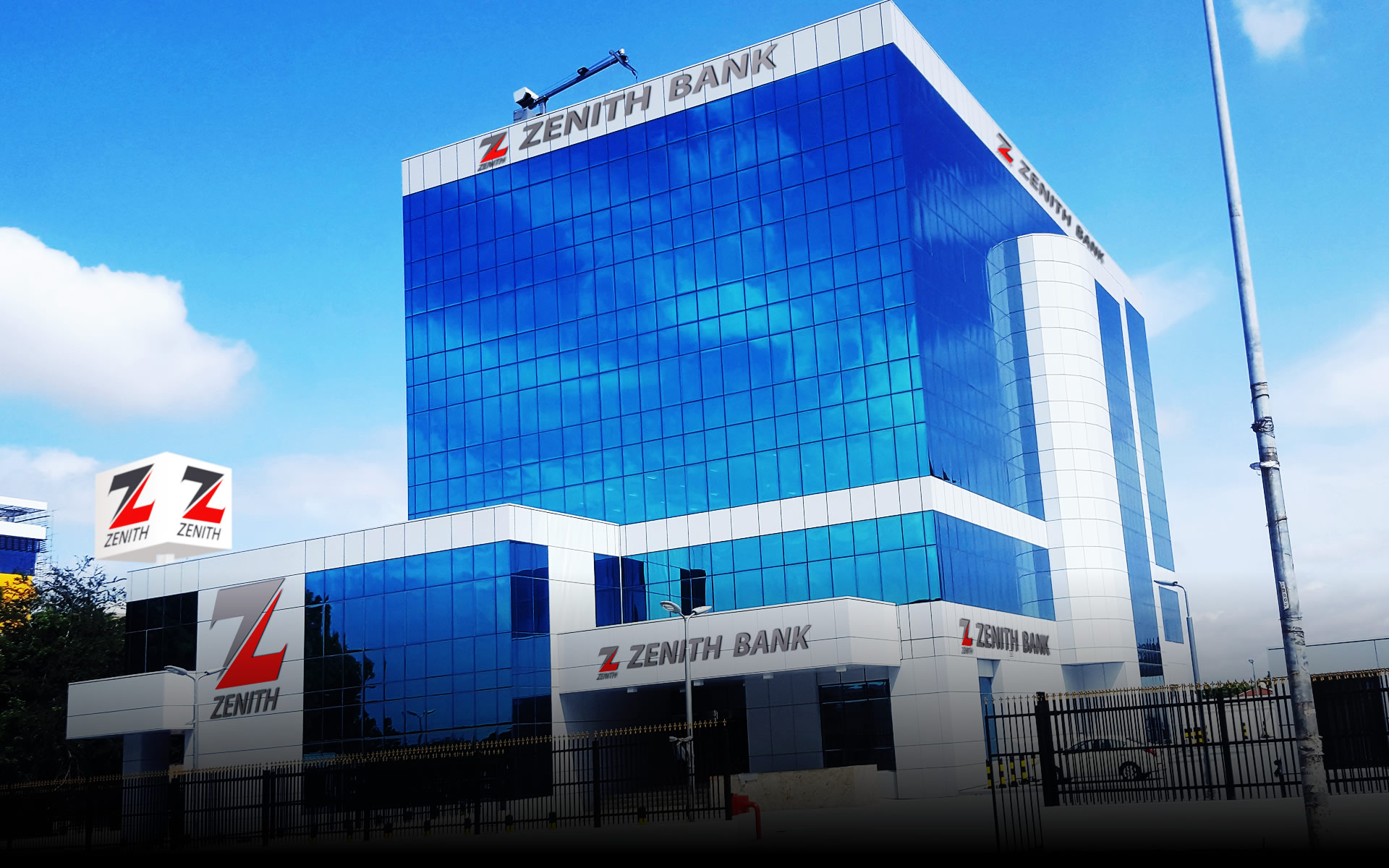
A new wave of digitization of financial services is afoot in Ghana, and Zenith Bank, named three consecutive times as “The Bank That Best Promotes Cashless Transactions” in Ghana, is in the vanguard of the trend. On one count, the search for greater convenience, scale and lower cost in providing financial services to traditional clientele is spurring digitization. A second driving factor is recognition by regulators and players that new, dynamic channels are required to bring formal financial services to the doorsteps of the many in the population who are excluded or underserved. Thus banks, non-bank financial institutions, mobile network operators, and third-party entities are leveraging mobile phones, the internet and points-of-sale devices to offer faster and more convenient basic financial services to customers while facilitating financial inclusion.
The mobile phone is the new bank branch
Perhaps the most popular and transformational instrument of digitization in Ghana’s financial sector today is the mobile phone, which is powering mobile banking and mobile money services. Mobile banking is currently on the rise in Ghana. This is simply basic banking services—balance checking and fund transfers—which a customer can access through his or her mobile phone. Initially, when mobile phones were less sophisticated than now, Zenith Bank, before other banks took notice, developed a product, Z-Mobile, which gave customers access to their bank accounts using the basic handsets that were in vogue then. With the proliferation of smartphones and tablets, the bank has relaunched Z-Mobile, a smartphone-based mobile banking application. Indeed, Zenith Bank is among the first in the Ghanaian banking industry to launch an app-based mobile banking service (available on Play Store on android or App Store on iPhone). Z-Mobile, which is simple to use and very secure, enables customers access their accounts and conveniently carry out banking transactions from any part of the world via smartphones and tablets. The app’s notable features include allowing customers to check balances on their accounts, view transaction history, top up investments (within Zenith and other investment houses like Databank), set up beneficiaries, effect instant intrabank (Zenith-to-Zenith) and interbank (Zenith-to-other banks) transfers via the Gh-IPSS Instant Pay (GIP) service and pay bills, on the go.
Mobile money is basically the use of the mobile phone to leverage the infrastructure of the financial system, principally the payments system, to provide remote financial services that are less costly in terms of expense to users and physical infrastructure requirements. From practically zero a few years ago, it is estimated that around 20% of adult Ghanaians now have a mobile money account. These mobile money accounts (wallets) are used to receive or send money, pay for goods and services, and bills. According to central bank data, mobile money transaction volumes have been virtually doubling annually for the past five years, with the value reaching US$9.3 billion from January-July 2016.
Zenith Bank is tapping the opportunities and possibilities that mobile money presents to grow its own business. This is being done, for instance, through the bank’s Mobile Money Bank2Wallet Service. The service enables customers to link their mobile money wallets (MTN/Airtel) to their bank accounts, to transfer money between their accounts and wallets, and to make payments for goods and services remotely at any time of the day. In less than a year of launching this service, well over 12,000 subscribers have signed up and monthly transaction values are above GHS150m.
e-banking on a quieter but steady uptrend
In e-banking, as in other areas, Zenith Bank’s innovations have heralded new milestones not only for the bank but the whole industry as well. For instance, Zenith GlobalPAY, a secured web-based collection gateway that enables merchants to accept card payments in real time online from customers worldwide, is a first-rate e-banking product and service supporting merchants to set up shop on the internet and sell to global customers. With a one-time integration, merchants (businesses) on GlobalPAY can receive payments from a wide variety of locally issued cards like Gh-link cards as well as internationally-issued cards. This product has caught on very well within the market with transactional volumes hitting GHS35m last year. As at June this year, transaction volumes have exceeded that of last year and are estimated to reach GHS70m by close of the year. With the increasing demand from merchants to sign on to the GlobalPAY platform, future projections could see volumes tripling each year.
Zenith Bank’s continued investment and upgrades have produced for the bank a robust digital banking infrastructure, complemented by the best card products on the market, covering debit, pre-paid and credit cards. This year, in addition to its suite of Visa cards, the bank has rolled out its MasterCard Debit, Credit and Prepaid cards, expanding the options for customers to access their funds from over 33 million locations worldwide. Card issuance stands at over 300,000 and is expected to grow further by the close of the year with more card products at the final stage of approval. When these new card products are approved, issuance could reach over half a million every year.
Zenith has also partnered with Gh-IPSS to provide the ACH Direct Debit platform, a simple, secure and reliable service that enables large and small organizations as well as individuals to collect funds from bank accounts. Direct Debit is an instruction from a creditor to its bank authorizing it to collect an agreed amount(s) from the bank account of the creditor´s customer so long as the customer has signed a mandate and has been given advance notice of the collection amount and date. This service can be used for recurring payments such as mortgages, utility bills, insurance premiums, loan re-payments, rent, subscription based service payments, etc. Amongst others, ACH Direct Debit offers improved control over payment timing, reduced time spent chasing unpaid or delinquent accounts, better accounting efficiency and excellent cash flow benefits from receiving regular payments.
The prospects for further growth in e-banking are excellent, with the regulator, the Bank of Ghana, prodding the industry to maintain innovation as it embarks on reforms to the payments system to make it more secure and diversified, but also integrated. The economy’s return to rapid economic growth in 2017 will also restore strong consumer spending growth and bolster demand for banking across the broad range of services.
Digitization is facilitating financial inclusion
Besides enabling the traditionally banked to transact financial services with greater ease, digitization is also promoting financial inclusion. Digital channels afford the unbanked an opportunity to leapfrog barriers to brick-and-mortar banking—such as cost and infrastructure—that historically have excluded them from the financial system. Half of the 20% of Ghanaian adults that have mobile money accounts do not have a bank account, proving that mobile money is not just an enabler of cheaper and more convenient financial services for those who already have access, but is also spreading the net to reach those who were previously financially excluded.
On its part, Zenith Bank, as a major financial services provider in the country for more than a decade, has an approach to financial inclusion that is built on a deep appreciation of the reasons for, and costs of, financial exclusion and how banks can tailor their business models to promote inclusiveness. Essentially, the causes of low financial inclusion can be explained by both demand and supply constraints. The demand constraints are the factors that limit demand for financial services from those who tend to be excluded, while supply constraints refer to the factors restricting supply of financial services by financial sector institutions to the underserved population.
On the supply side, the high cost of building and maintaining physical bank branches has been a major hurdle to extending financial services to remote communities. While Zenith Bank has been undertaking strategic physical branch expansion across the country, its frontline role in digitization to mitigate the cost and infrastructure obstacles to the spread of banking is contributing to financial inclusion. On the demand side, Zenith Bank recognizes that the kinds of financial products and services offered by providers, as well as their design, availability and how they are marketed, are important determinants of uptake by bankable but unbanked constituencies. Thus the bank has been prioritizing product and service innovation to suit the needs of varied market segments, including those frequently underserved.
Zenith Bank believes the momentum that digital finance has gained in Ghana will remain strong for years to come, driven by government and regulatory initiatives, innovation by service providers, increasing financial literacy, and an improving economy. The bank will stand ready to take advantage of both the opportunities and challenges this evolution will certainly present, by continuously investing in its people and infrastructure, innovating its products and services, exploring strategic partnerships, and putting the customer at the heart of everything it does. Being adjudged “The Bank That Best Promotes Cashless Transactions in Ghana” at the 16th Ghana Banking Awards, which is the third consecutive success, underscores the Bank’s leadership in digital finance in the Ghanaian banking industry.




